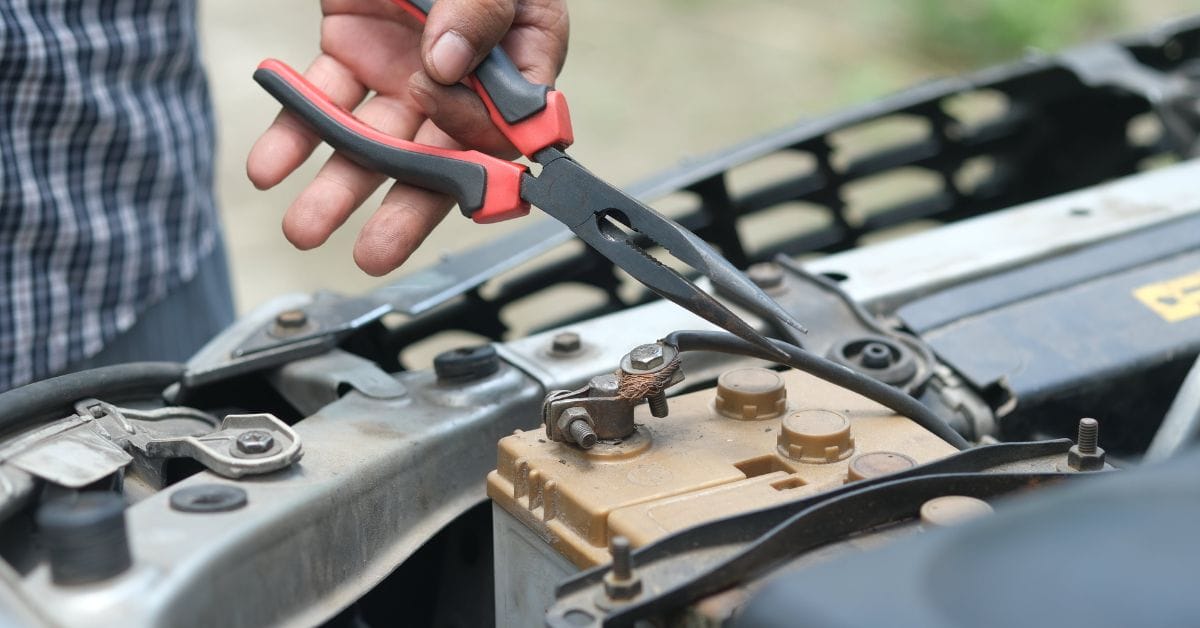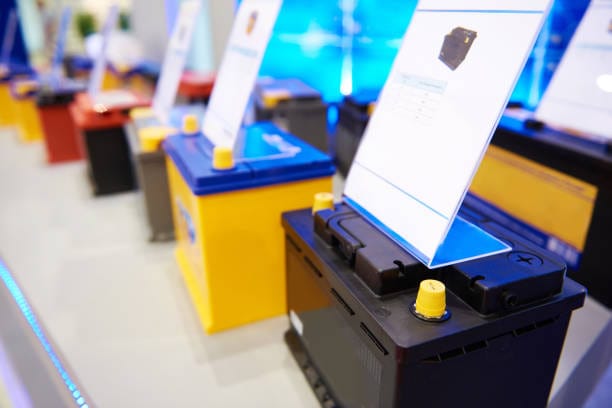Can You Return a Car Battery? Here’s What You Need to Know

Have you ever bought a car battery to find out it doesn’t work? Or maybe it’s the wrong size, or you changed your mind. Whatever the reason, you may wonder if you can return a car battery.
Depending on the store and its policies, you may be able to return a car battery within a certain timeframe or under certain circumstances. For example, some stores have a 30-day or 60-day return policy for car batteries, while others may require the battery to be unused and in its original packaging.
In this article, I’ll provide important guidance on how to return your car battery. By the end, you’ll better understand your options and what to expect when returning a car battery.
Can You Return a Car Battery?

Let’s talk about whether you can return a car battery. It’s a common question and one that can have different answers depending on a few key factors. Here’s what you need to keep in mind:
Store Policies
Different stores, different rules. Some places are flexible and might let you return a battery even without a receipt, as long as it’s still in its original packaging and you’re within the return window.
But in many cases, you will need that receipt or proof of purchase. My advice? Always hang onto your receipt, just in case you need to make a return.
Warranty
Here’s the deal with warranties: most car batteries come with one. This warranty usually covers defects or issues that aren’t your fault, like a premature failure. The warranty length can vary depending on who made the battery and the type you bought.
If your battery conks out during the warranty period, you should be able to bring it back to the store for a replacement or a refund. But remember, warranties don’t cover everything. If the battery’s been misused, neglected, or incorrectly installed, the warranty might not apply.
Conditions of the Battery
Now, this is important. Most stores will only take back batteries that are new and haven’t been used. Once you install the battery, it’s generally considered used. So, if you’ve put it in your car and given it a go, it might not be eligible for a return.
If the battery’s been damaged or tampered with, it can be a deal-breaker for returns. Keep it in tip-top shape if you think there’s a chance you’ll need to bring it back.
Retailers’ Return Policies

Let’s break down the return policies of some major retailers for car batteries. Knowing this can save you a headache if you ever need to return a battery.
I’ve compiled this handy table to compare the policies at a glance. Double-checking with the retailer for the latest info is always a good idea, as policies can change.
| Retailer | Time Frame for Returns | Receipt Required | Original Packaging Required |
|---|---|---|---|
| Walmart | 90 days | Yes | Yes |
| AutoZone | 90 days | Yes | Yes |
| O’Reilly Auto Parts | 90 days, up to 1 year | Yes | Yes |
| Costco Wholesale | 90 days or within the warranty period | Yes, but it’s not necessary as long as you can present your Costco membership card | Yes |
| Advance Auto Parts | 45 days | Yes | Yes |
| NAPA Auto Parts | 30 days | Yes | Yes |
| Pep Boys | 30 to 90 days | You can return the car battery without a receipt if you have an acceptable government-issued ID. | Yes |
How to Return a Car Battery
I’ve been around many tools and gadgets in my day, and I’ve had my fair share of experiences with car batteries.
Let me walk you through the process of returning a car battery, both from in-store and online purchases, based on my own experiences. Trust me, it’s not as daunting as it might seem!
In-Store Returns

Step 1: Know the Store’s Policy
- Before anything else, get familiar with the store’s return policy where you bought the battery. This is crucial because policies vary from store to store.
Step 2: Prep for the Return
- Here’s a tip from my experience: keep the battery unused and in its original packaging. Most places like AutoZone or Advance Auto Parts, where I’ve shopped, are strict about this. They usually offer a 90-day return window.
Step 3: Visit the Store
- I usually drive down to the store with the battery. Make sure it’s in the same condition as when you bought it. I remember once showing up at AutoZone with the battery, and they tested it right there to confirm it was all good.
Online Returns

Step 1: Check the Website’s Return Policy
- Are you buying online? Start by understanding the return policy. Each site is different, and I’ve learned it’s best to be clear on the specifics.
Step 2: Start the Return
- Follow the online retailer’s process. It typically involves printing a return label. Remember, pack the battery securely. I learned that shipping a car battery needs extra care because it’s considered hazardous.
Step 3: Ship it Off
- Send the battery back to the retailer. I always ensure I follow the guidelines for shipping hazardous materials – it’s important for safety.
Step 4: Keep Track of Your Return
- Keep a record of your shipment and any communications. It’s saved me a couple of times when I needed to follow up on a return.
There you have it – a step-by-step guide on returning that car battery. Stick to these steps and navigate the return process like a pro!
Alternatives to Returning a Car Battery

If your new car battery is still in good condition but cannot be returned, you may want to consider selling or trading it. There are a few different options for doing so:
- Sell the battery privately: You can try selling the battery privately through online marketplaces or classified ads. Be sure to accurately describe the battery’s condition and any relevant details, such as the brand and model number.
- Trade the battery: Some auto parts stores may allow you to trade your new battery for a different one. This can be a good option if you need a different type or size of battery for your vehicle.
- Sell the battery to a scrap yard: If you cannot sell or trade the battery, you may be able to sell it to a scrap yard. They will typically pay you for the battery based on its weight and the current market value of the lead.
While returning a newly bought car battery may not always be an option, alternatives are still available.
By considering battery selling or trading the battery, you can ensure that your old battery is disposed of properly and potentially recoup some of your costs.
Frequently Asked Questions
- What If I Lost My Receipt?
- No sweat! Some retailers might still accept your return if you’ve misplaced your receipt. They may use other verification methods, like checking your purchase history if you’re a member of their loyalty program or purchased with a credit card. However, keeping your receipt safe is always best, as it simplifies the process.
- How Do I Prove The Battery Is Defective?
- To show that your battery is defective, you can bring it to the store where it was purchased. Most stores have testing equipment to check the battery’s condition. They’ll see if it’s a manufacturer defect or premature failure. Keep your warranty information handy, as it will help process your claim.
- Can I Return A Battery I’ve Already Installed?
- This one can be tricky. Generally, if the battery has been installed, it’s considered used. Most stores require the battery to be in new and unused condition for a return. But if there’s a defect, your warranty might cover it. Check the store’s policy and your warranty terms for clarity.
- What Happens If I Don’t Have The Original Packaging?
- Many stores require the original packaging for a return. It helps them verify the product and resell it if it’s in mint condition. If you don’t have it, check with the store. Some might be more lenient, especially if you have all other necessary documentation.
- What About The Warranty Period?
- The warranty period varies by manufacturer and battery type. Typically, car batteries come with a 2-3 year warranty. If your battery fails within this period, you can claim a replacement or refund under the warranty. Just keep your proof of purchase and understand what the warranty covers.
References
Organizations:
- Battery Council International (BCI). https://batterycouncil.org/
- International Lead Association. https://ila-lead.org/
Books:
- “The Battery: How Portable Power Sparked a Technological Revolution” by Henry Schlesinger. https://www.barnesandnoble.com/w/battery-henry-schlesinger/1101057504
- “Consumer Rights and Law” by Margaret C. Jasper. https://worldwidescience.org/topicpages/c/choosing+genuine+opportunities.html
Website Resources:
- Consumer Reports – Automotive Section. https://www.consumerreports.org/cars/
- Battery University. https://batteryuniversity.com/
- AutoZone. https://www.autozone.com/
- Advance Auto Parts. https://shop.advanceautoparts.com/
- Walmart. https://www.walmart.com/
- Costco. https://www.costco.com/
